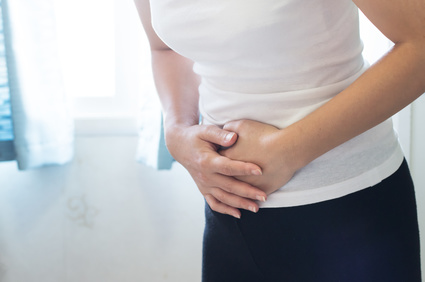Overactive Bowels – Meaning, Causes and Remedies
Bowel habit varies from person to person. For some people, it is normal to pass stool twice a day. In fact, a person may feel uncomfortable and bloated if they miss even one bowel movement. For other people, a normal bowel habit may mean passing stool every other day. As long as a person passes stool between three times a day to three times a week, the bowel habit is considered normal.
Overactive Bowels vs Diarrhea
There is a point where the bowels may be considered overactive or underactive based on the number of times stool is passed in a day or week. The term diarrhea which indicates the passing of more than 200g or 200ml of stool usually in more than three bowel movements within a 24 hours does not account for every change in bowel habit. Sometimes there may be frequent bowel movements for a short period of time but it is not diarrhea.
With diarrhea, the stool is either watery or of a loose consistency and often accompanied by other symptoms like urgency to defecate, abdominal cramping, excessive flatulence, abdominal bloating and bowel incontinence in severe cases. At times a person may experience frequent bowel movements, where the stool is of a normal consistency. In this case it does not fit into the category of diarrhea but cannot be ignored as being more frequent than normal.
Frequent bowel movements that are not loose or watery and do not arise suddenly may not be diarrhea. It cannot be clearly defined clinically and instead it is referred to as an overactive bowel. This is seen in conditions like irritable bowel syndrome (IBS). An overactive bowel is not pathological and will not lead to any complications like dehydration if it persists for a long period of time. Nevertheless, any disturbance in bowel habit needs to be carefully assessed and monitored. Sometimes it can occur with serious conditions like colorectal cancer.
Causes of Overactive Bowels
Bowel activity is due to a number of factors. The tiny muscles in the bowel walls contract and relax in a rhythmic manner known as peristalsis. This pushes food and wastes through the gut. The muscle activity is controlled by nerves and can also be affected by various chemicals, including drugs, toxins and hormones. Even the water content and bulk of the stool can affect bowel motility.
Any irritation or injury to the bowel can also increase its activity and speed up movement through the bowels. It can affect the bowel’s ability to reabsorb water from the stool. This movement, known as bowel motility, is also responsible for defecation. It pushes stool into the rectum which is then expelled into the environment. When the bowel motility is faster than normal, stool may not remain in the bowels for sufficient time for water to be reabsorbed. This further contributes to watery stool seen in diarrheal illnesses.
Nutrition and Lifestyle
Certain dietary and lifestyle factors (physiological factors) may affect the composition of stool and bowel motility resulting in overactive bowel movements.
- Food – certain foods, particularly spicy foods, overeating, frequent eating.
- Fluid – excessive fluid intake may regulate or restore normal bowel movements.
- Fiber – high fiber intake may regulate normal bowel movements but can also contribute to excessive gas or diarrhea.
- Stress – anxiety.
- Stimulants – nicotine, caffeine.
- Exercise – moderate physical activity regulates normal bowel habit while excessive strenuous activity may cause diarrhea
Functional Disorders
Irritable bowel syndrome (IBS) is probably the best known functional bowel disorder. This means that there is no detectable abnormality that can be attributed to the change in bowel habits as well as the other symptoms that is often present like abdominal cramping, abdominal bloating and abdominal distension. Stress, stimulants and certain foods are known to exacerbate the condition. The exact cause of IBS is unknown but it is associated with a disruption in gastrointestinal motility.
IBS may be diarrhea-predominant or constipation-predominant. Often there may be an alternation between the two states. In terms of the diarrhea-predominant type, a person will not experience diarrhea throughout the course of the disease. Instead there are frequent episodes of diarrhea but most patients will report overactive bowels, meaning bowel movements of 3 to 5 times a day (sometimes more) that is of a normal consistency. Most patients experience this after eating, even in the absence of stress, known trigger foods or stimulant use.
Drugs and Diseases
The pathological causes of an overactive bowel can be divided into acute or chronic and most will eventually lead to diarrhea. Some of these causes include :
- Drugs
– Laxatives
– Antibiotics (antibiotic-associated diarrhea)
– Antacids (containing magnesium)
– Prostaglandin analogues (stomach acid medication)
– Chemotherapy - Infections – viral, bacterial, parasitic
– Gastroenteritis
– Stomach flu
– Stomach infections
– Human intestinal parasites - Food Intolerance and Malabsorption Syndromes
– Lactose intolerance
– Gluten intolerance
– Fructose malabsorption
– Pancreatic enzyme deficiency (exocrine insufficiency) - Endocrine Disorders
– Hyperthyroidism
– Endocrine tumors - Bowel Diseases and Bowel Surgery
– Inflammatory bowel disease (IBD) – ulcerative colitis, Crohn’s disease
– Gastric bypass surgery
– Intestinal resection (short bowel syndrome)
– Whipple surgery - Cancer
– Colon / colorectal
– Small intestine
How To Slow Down Bowel Movements
Any underlying disease that causes diarrhea or overactive bowel movements that may not be diarrheal in nature needs to be treated. However, some dietary and lifestyle changes may be helpful. Always consult with a medical professional for condition-specific dietary and lifestyle advice for overactive bowel movements.
- Minimize or stop all stimulants, including caffeinated beverages like coffee. Nicotine replacement products should be discontinued as should tobacco consumption (cigarette smoking or tobacco chewing)
- Eliminate foods one at a time. This will help identify trigger foods that may be the reason for abnormal bowel motility. Lactose intolerance is one of the most common dietary conditions and milk and dairy should be reduced or avoided.
- Fiber is important for a regular bowel habit and overall bowel health. Ideally this would be sourced from foods but supplements may also be used. However, too much of dietary fiber may also contribute to abnormalities in bowel habit.
- Train the bowels to limit the frequency of bowel movements. It is never advisable to restrain a bowel movement when the urging arises. However, if the bowel movements are too frequent on a chronic basis then some degree of bowel training may help.







